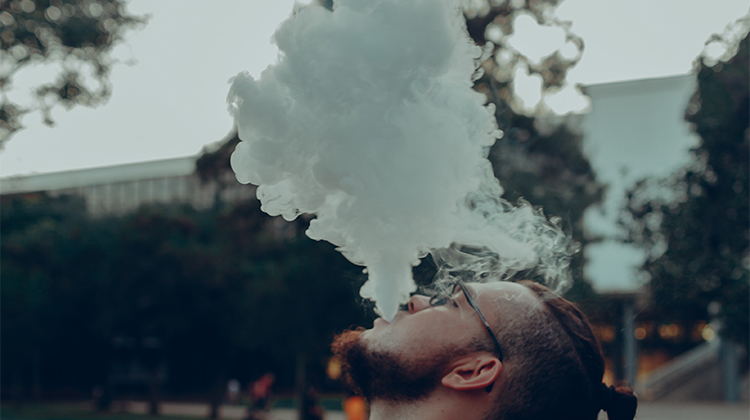Young vapers are still doing damage

Vaping is supposed to be less harmful than tobacco smoking but it seems that idea is more marketing than fact.
Young people have been taking up vaping enthusiastically and many will be experiencing the ill effects of that decision in years to come.
The ingredients of many of the e-liquids used to vape include those that are commonly used in household disinfectant, petroleum, cosmetics, paint and even eugenol which is commonly used to euthanise fish.
The most recent Australian National Drug Strategy Household Survey revealed an increase in the use of e-cigarettes among young Australians, including lifetime use of those aged 14–19 rising from 12.6 per cent to 14.5 per cent from 2016 to 2019 and those aged 18–24 rising from 19.2 per cent to 26.0 per cent retrospectively, so the spotlight of concern is on the country’s youth.
A study, funded by Lung Foundation Australia, Minderoo Foundation and the Scottish Masonic Charitable Foundation WA, tested the chemicals and toxicity of 52 flavoured vape e- liquids available for sale over the counter in Australia.
Results from the study revealed 100 per cent of the e-liquids were inaccurately labelled, 100 per cent contained chemicals with unknown effects on respiratory health, 62 per ccent contained chemicals likely to be toxic if vaped repeatedly and most concerningly, 21 per cent contained nicotine despite this being illegal in Australia.
In addition to this, chemicals found in these e-liquids were known to have health impacts, including causing severe irritation when inhaled and linked to the development of lung cancer; whilst other chemicals found were known to be safe for use in other consumer or retail products but remain untested for their impacts on short and long-term respiratory health when inhaled.
Lung Foundation Australia’s campaign, Unveil What You Inhale, addresses the concerning increase of young Australians vaping, with experts saying they could be left with devastating health impacts without industry reform.
Lung Foundation Australia CEO Mark Brooke said a nationwide ban on the use of e-cigarettes was vital to protect Australians, especially young people, from the known and unknown risks of vaping.
“With the unregulated, untested and unknown nature of the vape industry, we knew the research into the chemicals and toxicity of e-liquids would uncover strong findings, but we never expected such alarming results,” Mr Brooke said.
“The inclusion of fruit, alcohol and confectionary flavours along with deceitful marketing has meant these products are purposefully positioned as appealing to our younger generation, including school-age children, and in turn, most detrimental to their futures."
Clinical respiratory scientist, Dr Sukhwinder Sohal, who has extensively researched the impact of e-cigarettes, added that uncovering the dangers of vapes will soon become the norm, just as it did for smoking many years ago.
“Similar to what was learnt through research on tobacco smoke, we have discovered that e-cigarette vapor in the lungs is neither healthy nor safe,” Dr Sohal said.
“Research to date is already showing concerning results for vape users including an increased likelihood of long-term adverse health effects such as decreased lung function, increased susceptibility to microbial infections, scarring of lungs and potentially, lung disease.
“What many users may not realise is that any combination of fluid can be placed into these devices, whether stipulated by the manufacturers or not, meaning they are likely inhaling a long list of harmful chemicals. This is most concerning in young vape users who, by naively experimenting with a combination of inhalants, could end up with ongoing respiratory distress and long-term lung damage.”
Dr Greg Haug, a Tasmanian respiratory physician who has researched vaping products with Dr Sohal, echoed these sentiments, having seen first-hand the health implications of vaping.
“We have already seen a number of people, even young people, with respiratory health concerns aggravated by or acquired as a result of vaping,” he said.
“It is an area of clinical concern and I support any educational campaign that might help to tackle this new and evolving health epidemic.”
The campaign includes the launch of educational resources to support young people aged 12–17, young adults from 18–24, parents and carers, along with teachers and educators, in an effort to empower young people to make better informed decisions about their health.
To download the resources and learn more about the campaign visit lungfoundation.com.au/unveil
Photo by Rafael Barros from Pexels